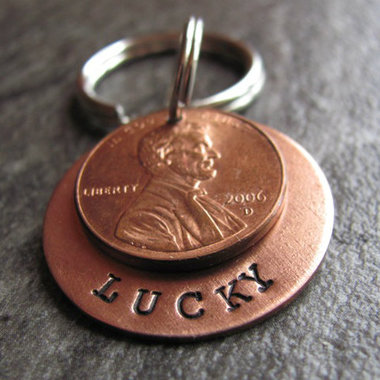Have you ever noticed how some traditions persist simply because that’s how it has always been done, even if they do not make sense? Superstitions, those curious beliefs rooted in culture and folklore, often fall into this category. In Korea, superstitions have become an integral part of daily life, blending seamlessly with modern living. From the ancient principles of Chinese geomancy, ‘Feng Shui’, to the customs of Tojeong's Secret Book (a yearly fortune-telling book), these beliefs have been passed down through the generations, shaping how people navigate their daily routines. Minor things like not whistling at night or being careful not to step on the threshold are just a few examples of how these superstitions have become a part of our cultural fabric. However, as our reporters have learned, superstitions are not exclusive to Korea; they span the globe.
In terms of Korean superstitions, the ancient wisdom of Feng Shui takes center stage. Feng Shui is a theory that connects a geographical layout or cardinal direction with a suitable place for burial or construction. People remind others of this superstition when moving around furniture or decorating their residence. For instance, when scouting for real estate, the best options are places with a mountain in the back and a river in the front. The preference stems from traditional geography. Throughout Korean history, people living in mountainous regions have long considered the site to have excellent Feng Shui because of its suitability for agricultural and eco-friendly characteristics. In essence, Feng Shui ultimately pursues a goal that combines a harmonious climate with a natural environment.
 |
| ▲ The superstition related to shaking legs that bring bad luck is so common in Korea. (Photo from Segye Ilbo) |
However, superstitions are a curious part of daily life that extends beyond the realm of Feng Shui. One such belief is related to Deoksugung Palace, where it said that “If a couple strolls along the stonewall walkway along the palace, they will break up or divorce.” Until 1995, a family court building used to be located near Deoksugung Palace. This naturally led to the formation of the superstition that couples who made the walk down the stonewall path to the building would end up in divorce. Another superstition involves the notion that bouncing one’s legs brings bad luck. The origin of this belief is steeped in a fable. The story tells of a physiognomist staying at a poor man’s home. He studied his face and concluded his economic circumstances were in stark contrast to what his physiognomy suggested. The physiognomist grew increasingly curious about this discrepancy. One night, he watched the poor man unconsciously bouncing his legs in his sleep. The physiognomist assumed that this behavior was the cause of his poverty, so he took drastic action and broke the poor man’s legs with a sledgehammer before running away. After this incident, the poor man’s fortunes were reversed, and he soon became wealthy. As a country is serious about the importance of education and exams, many superstitions in everyday life are closely tied to academic pursuits and students. For instance, some students adhere to strict prohibitions of certain foods and behaviors before exams, believing these actions might lead to failure.
The Dankook Herald (DKH) conducted interviews to examine some superstitions widely adhered to in other nations. Canadian Jenny Yeo told us about the ‘Lucky Penny.’ This is when you find a penny ‘heads-up’, meaning the side of the coin with the face is visible. Finding a penny face up is a symbol of good fortune. The origin of this superstition can be traced to a fusion of European and North American folklore, where coins were cherished as symbols of luck and protection. She reminded her friend of this superstition after he found a lucky penny before a job interview. The friend interpreted it as a good sign and aced the interview. It was such a coincidental occurrence that added charm and mystery to the superstition. Notably, some superstitions from the past are gradually fading away, especially among younger generations and in urban areas. Beliefs such as “Avoiding walking under ladders”, which used to mean bad luck, are less common these days. However, more lighthearted superstitions, such as the ‘Lucky Penny,’ continue to be rampant among people. This is not unique to any culture. Superstitions related to lucky or unlucky numbers are a worldwide phenomenon, such as the number 7, which is considered auspicious in various regions. These parallels highlight the shared essence of human beliefs that transcend geographical boundaries and connect us through our shared fascination with the mysterious and the fortunate.
The DKH also interviewed Nakano Moeka, an exchange student at Dankook University (DKU). She told us that in Japan, there is a superstition that says, "A child must hide his belly button when thunder strikes." This superstition has been handed down for many generations and has its origins in another fable. It was believed that the God of Thunder, Rajin, loved the navels of children. This meant that children with exposed belly buttons during a storm would be devoured by the deity. Another superstition she told us about says that one girl born in Japan every 60 years will have a rough temper and cause her husband to die, leading to a decrease in the birth rate that year. When Nakano Moeka was young, she believed in superstitions more than now because her family had reinforced the ideas a lot, and believing in them sometimes helped her through difficult periods. She recalled an incident from middle school where she was incredibly nervous about an upcoming test. However, she found comfort in a superstition that she would be okay if she wrote the Chinese character "person" on her palm and pretended to eat it three times. Surprisingly, it relieved her stress, and she did well on her test.
 |
| ▲ Lucky Penny is believed to bring good luck to people. (Photo from Northeast Regional Library) |
She also found that other cultures held superstitions similar to those in Japan. "If you cut your nails at night, you cannot see your parents' death," is almost identical to the Korean superstition, "If you cut your nails at night, you will see ghosts." However, she says, these days many people, herself included, no longer believe in superstitions with no scientific basis. However, the idea that "It’s lucky to have dreams of Mount Fuji, a falcon, and an eggplant during the Lunar New Year" persists.
When seemingly unrelated events occur one after another, people often look for a causal relationship and end up mistaking coincidence for inevitability. These coincidences, over time, have solidified into the superstitions we are familiar with today. While it is understandable to seek solace in superstitions during uncertain times, it is crucial not to let them dictate our lives entirely. Exploring the superstitions of different cultures can offer a glimpse into their unique way of life. Therefore, rather than allowing these beliefs to excessively govern our lives, we should instead take them lightly and enjoy the history of our shared and unique cultures.
김영준, 딘푸엉타오, 김영신, 서지호 dankookherald@gmail.com

 Vote for the Campus Brand Naming!
Vote for the Campus Brand Naming!

![[Campus Magnifier] Let's Surf the Library!](/news/thumbnail/202404/12496_1765_4143_v150.jpg)




